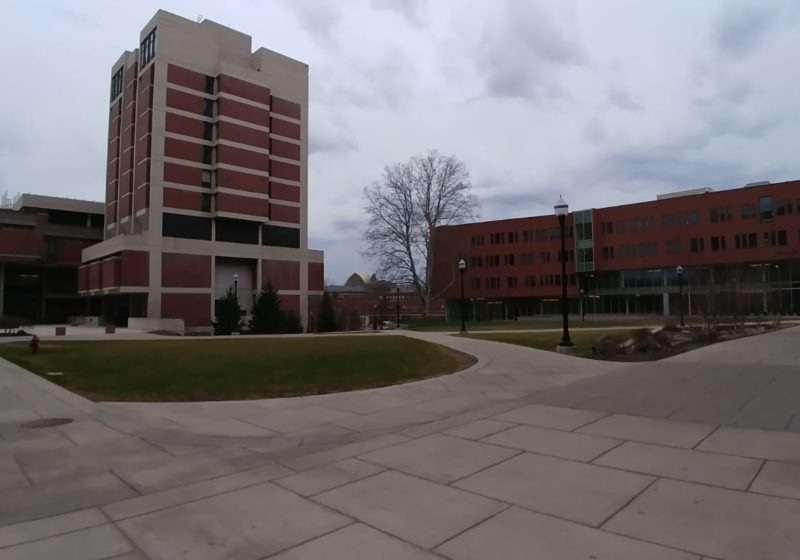Involvement from STEM professors at last month’s Scholar Strike/Teach-In was sorely lacking, according to attendees from Tuesday’s virtual open discussion on anti-racism in STEM.
Junior Sarah Atterbury, a computer science major and member of Women in Computing/Minorities in Computing (WiC/MiC), said that she had almost no communication from her computer science professors about the strike/teach-in.
Other members of WiC/MiC and other computer science majors also told her that they didn’t hear anything from their computer science professors.
“It’s not like the fields don’t have any inequity,” Atterbury said. “And to have it not be mentioned by STEM people at all implies that it’s not our job, when very much it is our job to address and recognize inequity.”
Junior Steven Colberg, the primary host of the discussion, noted that few natural sciences had open classes included in the teach-in, and that there was no participation from the Hajim School of Engineering.
Colberg is a member of the National Society for Black Engineers (NSBE) at UR, one of the organizations that hosted the event along with WiC/MiC and the Society for Asian Scientists and Engineers (SASE).
He also spoke about how students and faculty should be aware of what’s happening in the greater Rochester community as well, not just on campus. He mentioned the ongoing protests about Daniel Prude’s death at the hands of Rochester police, and the necessity of discussions about racial inequities in STEM.
As a part of NSBE, Colberg has been working to improve the retention of Black and minority engineers in the Hajim School of Engineering, a problem that Hajim struggles with, according to him.
“Many times, I’ll have my engineers come to me and say, ‘MechE is really hard man, I don’t think it’s for me,’ or ‘Comp Sci is getting too much, I don’t think it’s for me,’” Colberg said. “And they’ll switch out of that major, they’ll just switch entirely out of engineering.”
Another prompt had attendees annotate again, this time about whether their STEM classes were cancelled or whether the teach-in was mentioned. The Zoom whiteboard became dotted with mostly nos, some yeses. For students who said yes, only one of their classes would be cancelled, or the professor only mentioned the teach-in but didn’t cancel class.
“This is exactly why we’re here,” Colberg said, later adding, “Hajim definitely could have had a spot in the Scholar Strike […] It’s kind of disappointing that not one professor took the time to center [a] lecture around that.”
Colberg talked about wanting the history of Black and minority engineers to be taught in his classes. “All my computer science majors have heard so many things about Alan Turing, like yes, we know,” he said. “But many times people don’t know about the Black women that have been pushing computer science past what it’s been since Alan Turing.”
Junior Arnav Sharma agreed, suggesting that departments offer courses with history geared towards minorities, and make them mandatory.
“I don’t think including one-to-two classes on the history of [minorities] in the field will hurt the class curriculum or schedule,” junior Ali Mganga added in the chat.
The importance of widening the curriculum to include more diverse voices and provide a broader historical context extends beyond recognizing the contributions of women and minorities.
“If everything that we build is based on racist, sexist data, then how can we possibly move away from those systems?” Atterbury asked. “[Addressing] that when we are in our learning phase of life is so much more important than trying to unlearn it as adults and trying to teach your old managers that the stuff that they have is racist.”
Some students shared recommendations, like a book or a class. Senior Anna Zimmerman talked about the “Decoding Gender in Technology” class, noting that the class wasn’t advertised to CS students, despite the course talking about how biases are built into algorithms.
The Tuesday discussion was geared mostly towards students, but future steps will include more of the University community.
Atterbury hoped that this would be the first step towards actionable change, and Zimmerman said that this event was meant to get a sense of the issues, and whether students actually care.
“So yes, you showed up, and it is a bigger problem than we thought,” Zimmerman said.
Colberg added that the conversation should not stop after the discussion was over. For the people who didn’t show up to the event, he encouraged the attendees to spread the word.
“Make sure that you hold them accountable; make sure you tell them what happened in this meeting.”






